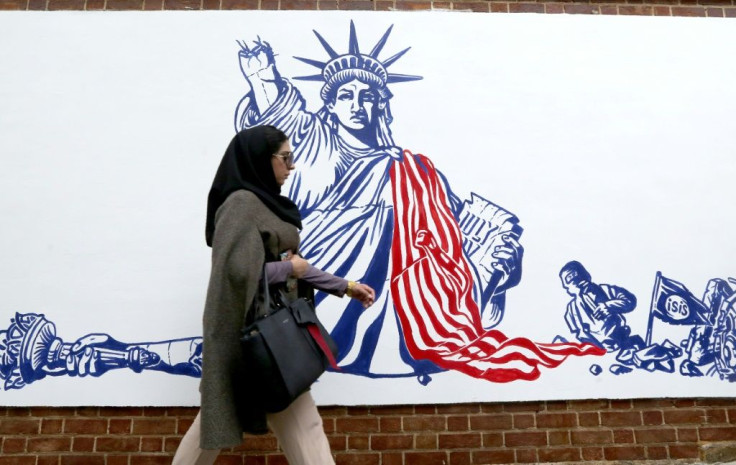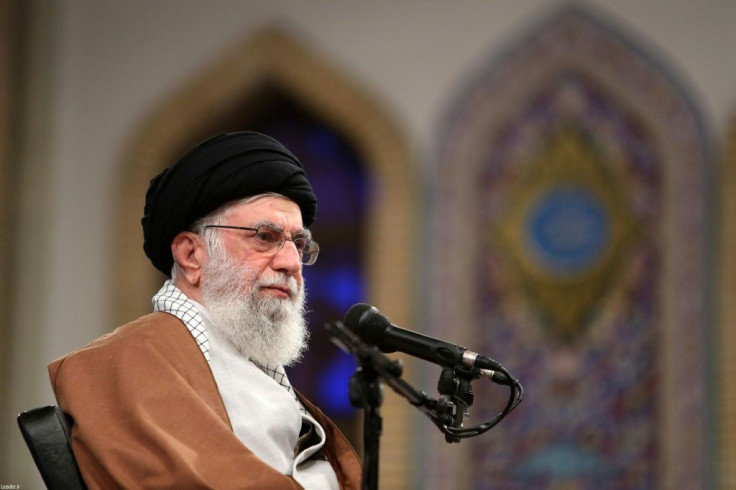Iran's Khamenei Rules Out Talks With US

Iran's supreme leader on Sunday again ruled out negotiations with Washington, a day before the 40th anniversary of the hostage crisis at the US embassy in Tehran.
"Those who see negotiations with the US as the solution to every problem are certainly mistaken," Ayatollah Ali Khamenei said during a speech to mark the anniversary, according to his official website.
"Nothing will come out of talking to the US, because they certainly and definitely won't make any concessions."
On November 4, 1979, less than nine months after the toppling of Iran's American-backed shah, students overran the embassy complex to demand the United States hand over the ousted ruler after he was admitted to a US hospital.
It took a full 444 days for the crisis to end with the release of 52 Americans, but the US broke off diplomatic relations with Iran in 1980 and ties have been frozen ever since.
Khamenei, however, said the Iran-US "disputes" did not start with the embassy takeover.
"It goes back to the 1953 coup, when the U.S. overthrew a national govt. -- which had made the mistake of trusting the U.S. -- and established its corrupt and puppet govt. in Iran," his Twitter account said in English.
That CIA-organised coup, supported by Britain, toppled the hugely popular prime minister Mohammad Mossadegh who was responsible for nationalising Iran's oil industry.
The coup reestablished the rule of country's last shah, Mohammad-Reza Pahlavi, who had fled the country in August 1953 after trying to dismiss Mossadegh.
Tensions have escalated again between Tehran and Washington since US President Donald Trump withdrew from the 2015 Iran nuclear deal last year and reimposed unilateral sanctions.

Khamenei pointed to North Korea's negotiations with the US as a sign of Washington's untrustworthiness, tweeting that "they took photos and praised each other, but the Americans did not lift sanctions even a bit.
"That's how they are in negotiations; they'll say we brought you to your knees and won't make any concessions at the end."
'American demands'
Khamenei called French President Emmanuel Macron's efforts to set up talks between Iran and the US "naive".
He said Tehran had tested Washington by calling on it to lift sanctions and return to the nuclear deal, known as the Joint Comprehensive Plan of Action (JCPOA), which gave Iran sanctions relief in return for curbs on its nuclear programme.
Macron's efforts to initiate a phone call between US President Donald Trump and his Iranian counterpart Hassan Rouhani on the sidelines of the UN General Assembly in September ended in failure.
Rouhani stressed he would only hold talks with the US if sanctions were lifted first.
Khamenei said Macron had considered a meeting with Trump to be "the solution to all of Iran's problems," making the French president either "very naive" or the "accomplice" of the United States.
And "for the sake of testing and to clarify for everyone, I said despite the fact that America had made a mistake in leaving the JCPOA, if they lift all sanctions, they (the US) can take part in the JCPOA although I knew they would not accept, as they did not," he added.
Slamming the seemingly unending "American demands", Khamenei said that after telling Iran to not be "active in the region" and end its production of missiles, Washington will next "say give up religious laws and don't insist on the issue of the hijab."
Tehran has hit back three times with countermeasures since May in response to Washington's withdrawal from the nuclear deal by suspending parts of its compliance with the agreement's terms.
It has threatened to go even further if remaining parties to the deal -- Britain, China, France, Germany and Russia -- cannot help it circumvent US sanctions.
© Copyright AFP {{Year}}. All rights reserved.




















